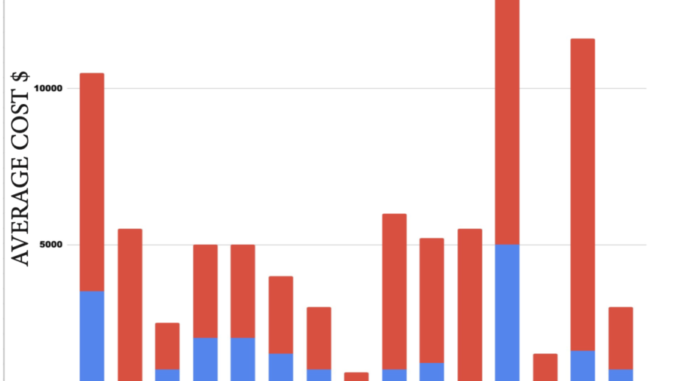
design: Lincoln Hake
School season represents an athlete’s student body. It labels a school as good, bad, or just OK. The ability to learn and grow over the off season is the key to development in skill level. Most people believe that major growth comes through playing club sports.
During the off season of a school sport, many people play club sports in order to play the sport they love while simultaneously learning and developing as a player. Club season normally lasts for a lot longer than the school season and is used as a time for growth and development.
“Club sports are how I have grown and learned the most about softball throughout my life,” Ohio All Americans club softball player Emily Rodenberg said.
While club sports are used for a time of growth and development, not every athlete has the opportunity to play club sports. They take up multiple afternoons during the week, fill many weekends, and are very expensive.
“For softball equipment alone, the cost is around $1450. Other fees for club sports are $1600 and whatever traveling costs,” Rodenberg said.
Some people don’t have either the time or the money for these expensive club sports. There are other ways that athletes are able to learn and grow as athletes such as getting repetitions in by themselves.
“I spent the majority of my time playing on my own, at the park, and just with friends or other kids who wanted to play. This is a good way to develop in the game and grow a love for it without playing in a club environment,” Director of Classic Eagles soccer club Tony Earp said.
Learning to have love and respect for the sport an athlete plays will, while playing it with friends or even alone, will cause an athlete to grow as a player. Club sports are not always an option for every person.
“I think doing all-star cheer would benefit my team because we would be learning all year long. We would have more reps and would be a stronger and more skilled team because of this,” cheerleader Kaylee Vance said.
The area that a school is in and how much income that school has to put towards sports is seen as a deciding factor whether a school is good at sports or not. This is not always the case even if most of the athletes don’t play club sports.
“Sometimes, some people who don’t play club have just as much natural talent as the people who do, but most of the time people who play club have more experience in competitive environments, therefore have a little bit better skill level,” Barca Academy Columbus club soccer player Caroline Debolt said.
The training that athletes receive from playing a club sport is rigorous and very beneficial to their game. They are getting a lot of exposure to the sport and are continuously able to grow their knowledge of that said sport.
“I have learned so many useful things from the different coaches that I’ve had over the years and learned many life lessons as well. I wish everyone could have that experience,” Debolt said.
Athletes all have a unique relationship with the sports they play and their teammates. The amount of skill someone has could be hidden if a team does not work well together.
“A team’s skill level is determined by how strong and united players are. Teamwork is most important,” Vance said.
Club sports are majorly important for one thing— getting recruited for college. It doesn’t matter how well the school team works together because most recruitment occurs through clubs. They get athletes exposure to colleges.
“Clubs work directly with college coaches and with the kids in the club in the recruitment process. Most players who play college soccer do so coming from club programs as it is where most colleges will focus their searches. It does not mean it is the only way to play college soccer,” Earp said.
So if an athlete is interested in joining a club, some people to consider talking to are coaches, teammates, and parents. If a player doesn’t have that option, a strong devotion to a sport and practicing by oneself will help further an athlete’s athletic career.


